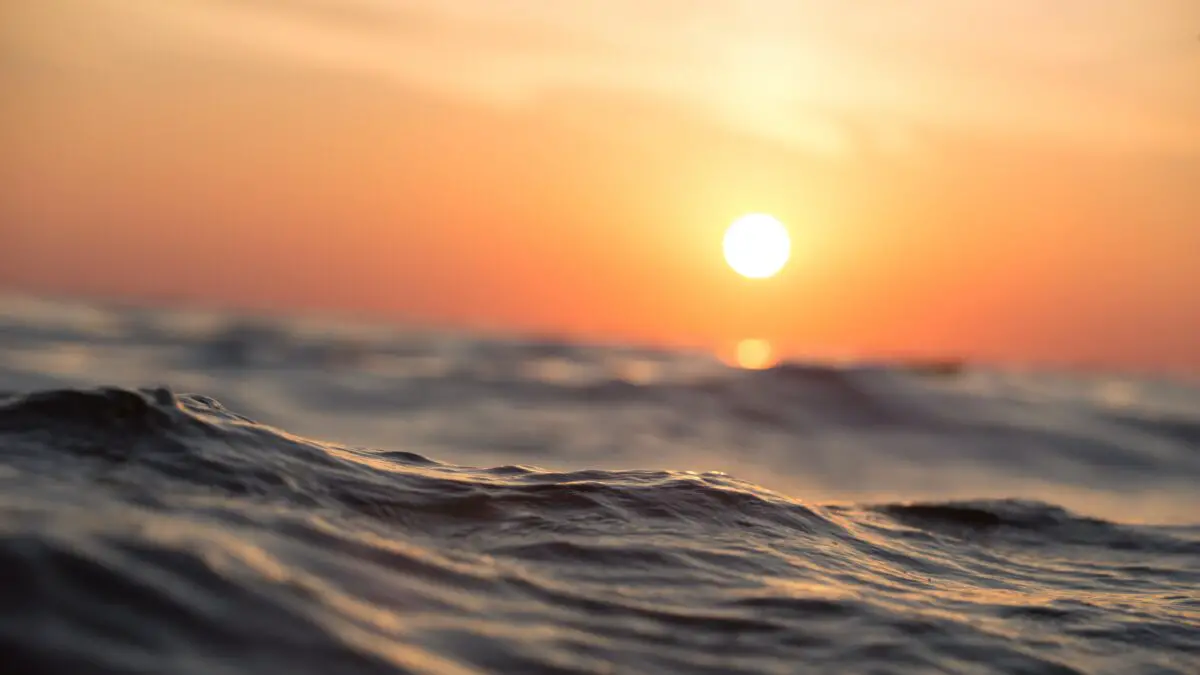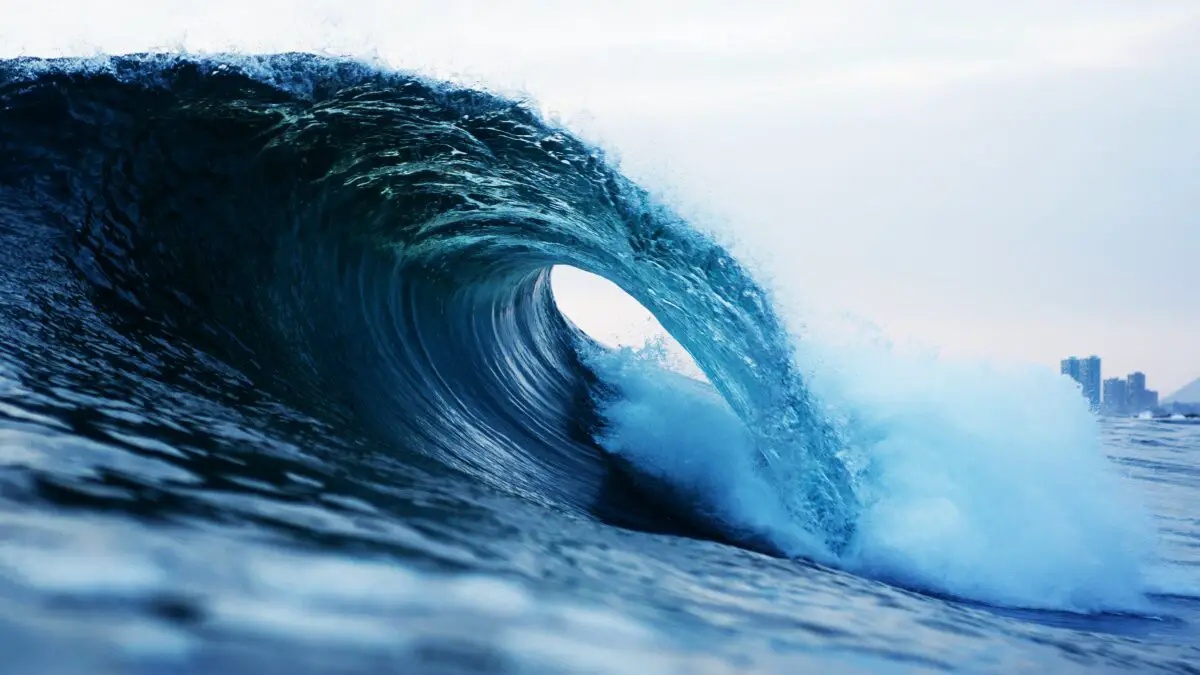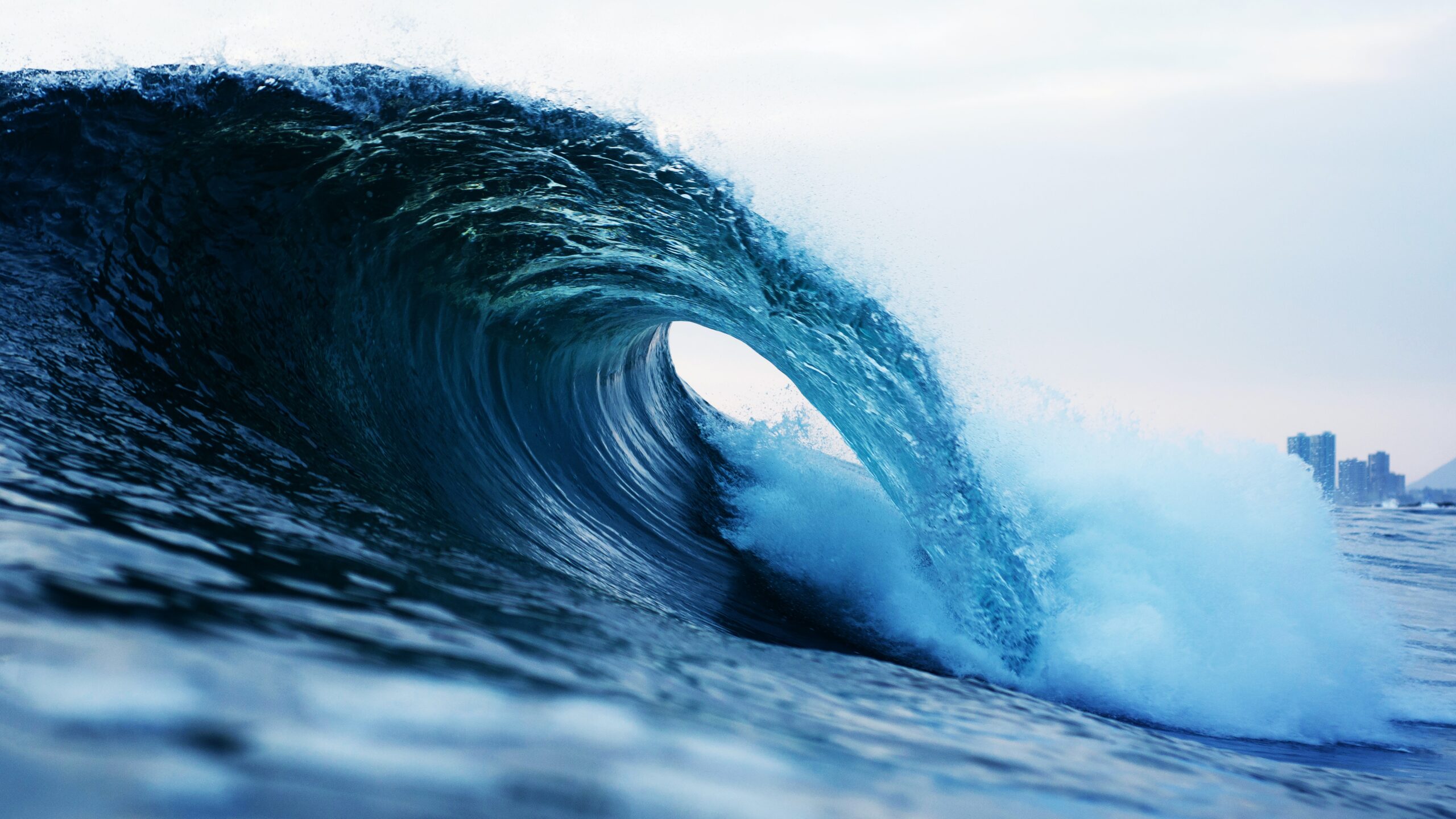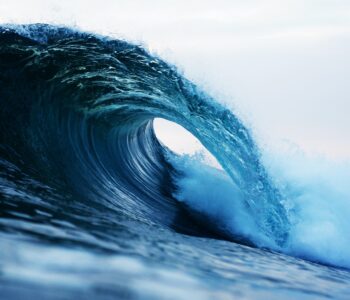It’s incredible to find out how many sea and ocean idioms there are in the English language!
But because idioms are phrases that have a figurative meaning, you’ll find that many of these nautical phrases that mention the ocean actually have a completely different meaning. We can use them to describe emotions, experiences, finances, and more.
So, let’s dive into this list of sea idioms, each one with a helpful explanation and example to help you understand them better.

Sea and ocean idioms
A drop in the ocean
For a moment, compare the size of a drop of water to the volume of water in the ocean. It’s incredibly small in comparison. This is why a drop in the ocean refers to something very small or insignificant that does not make a difference or have much effect.
“I love the fact you’re willing to help, but honestly, it would only be a drop in the ocean.”
A common variation of this ocean idiom is a drop in the bucket. This has a similar idea – filling a bucket of water by adding just one drop at a time is going to take a while!
Make waves
Ocean idioms can be used in many different settings. For example, the saying make waves is often used as a workplace idiom. It refers to someone making a big change or a good impression.
“Whatever you do, don’t start making waves in your new job too soon.”
It’s important to know that this can also be used in a negative context if you want to advise someone not to cause disruption or bring too much attention to themselves.
On the crest of a wave
Someone said to be on the crest of a wave is going through a particularly successful period. However, just as waves rise and fall, this idiom about success implies that the success is only temporary.
“Seems like we’re on the crest of a wave right now. Let’s make the most of it while it lasts!”
For a more sustained period of success, you could say they are riding the wave of success.
Cry an ocean
Simply put, when you cry an ocean, you cry a great deal.
“She’s been crying an ocean even since her football team lost the main match.”
There are many other English idioms about crying for you to explore, too.
An ocean of (something)
Ocean idioms can be very versatile, and this one is no exception. As the ocean is large, deep, and vast, an ocean of something simply means a lot of it.
“There’s an ocean of opportunities if you get your degree first.”
We can use a sea of in the same way.
“You’re getting yourself into a sea of trouble if you start hanging out with those guys.”
A whale of a time
Next time you’re talking about a party or event you’ve been to and enjoyed very much, use this fun saying about happiness. To have a whale of a time is to have a great time. This may include dancing, singing, eating, and drinking a lot.
“Everyone had a whale of a time at the concert last night.”
Plain sailing
Isn’t it nice when something just goes well, without any problems? You may even say it’s easy to do. In that case, you could describe the task or process as plain sailing.
“Moving house has been plain sailing so far.”
Big fish in a small pond
If you are called a big fish in a small pond, you are being told that you are well-known or important in your small circle of friends but not very influential in the wider world.
“Yes he’s influential in our area, but like a big fish in a small pond, no one outside of the city knows him.”
This is another ocean idiom that’s fun to imagine: A fish that looks big in a small pond would suddenly seem much smaller if you placed it in the sea. And there are more great idioms about fish here, if you’re interested.
As deep as the ocean (is blue)
The phrase as deep as the ocean (is blue) has a poetic feel. You can use this when describing something incredibly intense or profound, especially emotions or character. We know that the ocean is extremely deep, so this is a great simile to use.
“The new guy is as deep as the ocean is blue. Really interesting to chat to.”
“My feelings for you are as deep at the ocean.”
It can also be used to emphasize how much you feel for another person, showing that your feelings come from very deep inside your heart.
Between the devil and the deep blue sea
Between the devil and the deep blue sea has the same meaning as a more common saying, ‘between a rock and a hard place’. Both refer to a difficult position where you have to decide between two (or more) outcomes that are equally unpleasant or undesirable.
“I’ll either upset mum or my girlfriend. I’m between the devil and the deep blue sea!”
This unusual sea-faring saying has interesting origins.
Oceans apart
Next on our list of ocean idioms is one that is great for exaggerating a distance or difference of opinion.
The expression oceans apart just means very far apart, as if separated by an ocean. It can be used to refer to a physical distance, such as two people living in different countries, or a figurative distance, like two disparate points of view.
“The negotiations are not going well. The parties are still oceans apart on several terms.”
“I know it hurts to be oceans apart, but it’s only for a few months.”
This type of exaggeration is known as hyperbole. You can read more about hyperbole vs idioms here.
Boil the ocean
For a moment, imagine how hard it would be to boil the ocean! If you’re thinking it sounds like an impossible or futile task, you’ve already figured out the meaning of this ocean idiom.
“Guys, there’s no need to boil the ocean over this report. Just a few pages will do.”
This is another idiom often used in the workplace to warn against creating tasks that are a waste of everyone’s time. The only question is, is this saying still relevant today?

Sea idioms
All at sea
When you are literally ‘at sea’, you are sailing on some kind of vessel in the sea. But used as a sea idiom, it means to be perplexed, confused, or troubled about something. We often intensify this as all at sea.
“I’m all at sea with this new project management software. I wish we could go back to using the old one!”
Water under the bridge
Sometimes in life, bad things happen. To say that something is water under the bridge is to say that you no longer worry about it or consider it important.
“Listen, it happened 5 years so it’s water under the bridge as far as I’m concerned.”
Another saying similar to this is ‘what’s done is done’. The event can’t be changed so there’s no point being concerned by it anymore. You can find some more idioms to talk about the past here.
The coast is clear
The coast is clear is a fun saying that means that there is no visible danger and it’s safe to proceed. You could use it when crossing the road, for example, but it’s often said by mischievous children (or adults!) who want to do something naughty without getting caught.
“Dave, Mum’s gone to bed so the coast is clear if you want to play my video game now.”
Like a fish out of water
Ever feel like you don’t quite fit into a place, or that you are in an uncomfortable situation? This is what a fish out of water feels like – just imagine what happens if you remove a fish from its natural habitat of the sea!
“Honestly, I feel like a fish out of water in this new job.”
This also features on our list of water idioms.
Sea change
When people talk about a sea change, they are referring to a significant difference, alteration, or transformation.
“We can’t afford a sea change in our manufacturing processes right now.”
“There has been a sea change in attitudes to ownership of certain dog breeds after several recent attacks.”
Keep something/someone at bay
When you keep something or someone at bay you are stopping it or them from causing you problems or harm. It can mean you are maintaining a physical distance, or suppressing something to stop it from reaching full potency.
“This medication is really keeping the pain at bay, thankfully.”
“The riot police kept the crowds at bay while the president was passing through.”
Although this sounds like a sea idiom because boats are kept in a bay when not in use, it actually comes from hunting.
Drink like a fish
You’d imagine that fish living in the ocean drink a lot of water. But when we use this drinking idiom to say that someone drinks like a fish, it means they consume a lot of alcohol.
“Arjun was drinking like a fish last night so no wonder he’s ill today.”
Rock the boat
Be it literally or idiomatically – you don’t really want to rock the boat. This ocean idiom means to cause upset, problems, or disturbance in a situation.
“Listen, the matter is long forgotten. Please don’t rock the boat by bringing it up again.”
Plenty of fish in the sea
Don’t let the reference to fish confuse you; this is actually an idiom about dating and relationships, or lack thereof!
If a person is struggling to find a partner, you can encourage them by saying there are plenty of fish in the sea. It just means that there are still plenty of people out there for them to date.
“Don’t give up hope. There are plenty of fish in the sea.”
A variation you can use to console someone who has just ended a relationship is there are plenty more fish in the sea.
Keep your head above water
To keep your head above water is to survive financially. It’s generally used in a negative sense to describe a person who is struggling with a limited amount of money and only just has enough to live on.
“Sadly, Jane lost her job and we’re only just keeping our heads above water.”
“It sounds like Raul is struggling to keep his head above water at the moment.”
Which of these sea and ocean idioms are new to you? Let us know if there are any others you think should be added to this list.
We also have some more idioms about nature for you to check out next.




Such a delightful dive into the deep sea of language! This ocean idioms post has a tidal wave of creativity and linguistic brilliance. It’s like sailing through a sea of words that not only tickle the imagination but also stir the depths of our understanding. Kudos for making language exploration feel as vast and fascinating as the ocean itself!
Emily, UK